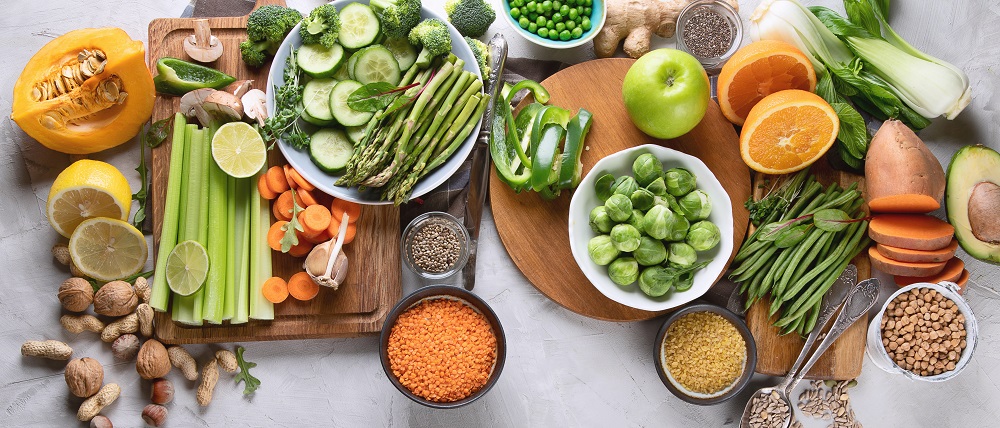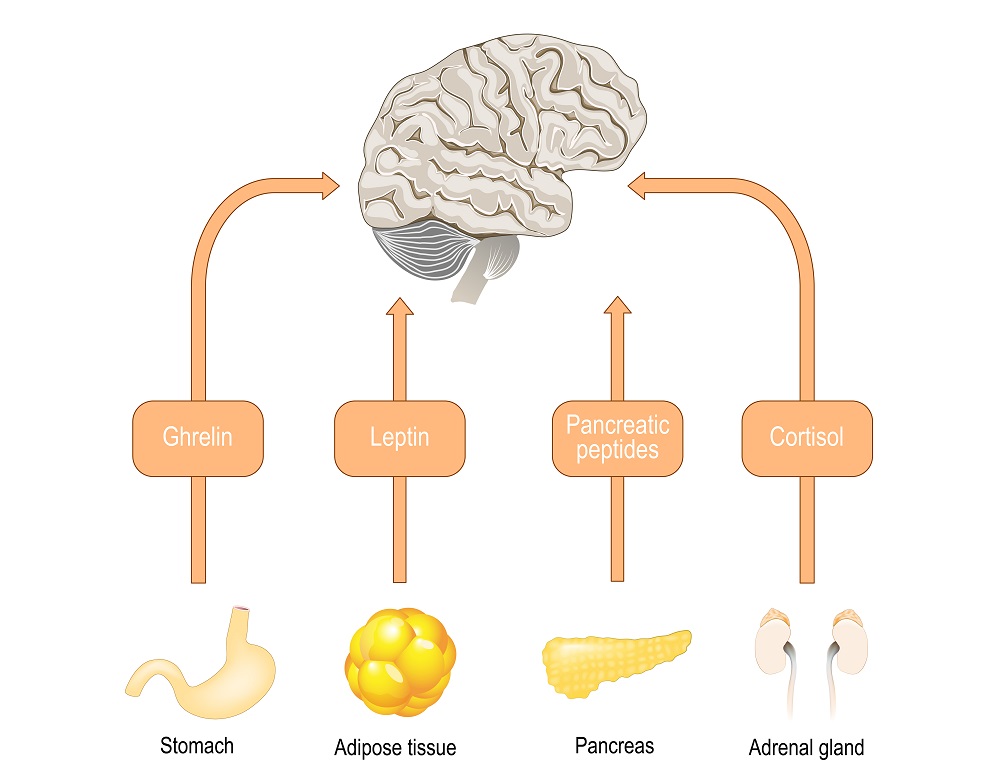The food people eat and the products they use make up a significant part of their lives which is why deciding to go vegan is a major lifestyle decision. The vegan community is a diverse group of people with their own opinions and beliefs, but common vegan characteristics include abstaining from eating and using animal products. While there are benefits when transitioning to a vegan diet and lifestyle, there are certainly some common detox symptoms brought about by the sudden dietary change.
The body easily gets accustomed to the food people frequently eat which is why dietary changes can subsequently cause some atypical symptoms and experiences. According to studies, anecdotes, and other reports, getting into a vegan lifestyle can commonly cause some digestive discomfort, issues with energy, and hunger troubles.

Veganism can be traced back to the early 1940s as a result of non-dairy vegetarians seeking a specific name for them to distinguish themselves from typical vegetarians. Since then, veganism has become more and more popular, especially in the 2010s (1).
Initially, veganism was a way to protest against animal cruelty and exploitation. However, the modern movement can now be attributed to other factors. Aside from supporting animal rights, other people get into veganism for health or even environmental reasons.
Veganism can have many different interpretations but a common denominator among people transitioning is that they cut off food items that they have already been accustomed to. These food items include meat, fish, poultry, and dairy. Food is an incredibly important aspect of life, and it should come as no surprise that having such a drastic lifestyle change would incur some inadvertent side effects. Here are some detox symptoms that people have reported when they decided to go vegan.
There are many ways plant cells differ from animal cells. Aside from some organelles present in one and absent in the other, plant cells are typically characterized by being supported by a cell wall. These cell walls allow plant cells and tissue to become hardy and fibrous. This structural difference alone can have an impact on an individual’s digestion since many plant fibers cannot be broken down by human digestive enzymes (2).
Different types of plant tissues and fibers exist such as cellulose, hemicellulose, beta-glucans, and starches. These fibers also differ from one another on a molecular level. However, the fibers that end up in people’s diets are often categorized by how they are processed in the body.
One of the primary ways people categorize fibers is between soluble and insoluble fibers. Simply put, soluble fibers can dissolve in water while insoluble fibers cannot. Although the distinction might seem arbitrary, the implications affect digestion in completely different ways.
Firstly, soluble fibers are fibers that can dissolve in the digestive tract. Although they are structurally durable, dissolving in the intestines allows these fibers to break down and release simple carbohydrates. These carbohydrates then feed the bacteria that grow and thrive inside the intestines. Having a symbiotic relationship with these bacteria, people can obtain different products that these bacteria produce as they grow.
On the other hand, insoluble fibers do not function the same way. Since they do not dissolve in water, these insoluble fibers actually attract water and therefore increases the moisture of fecal matter, making them easier to pass. Insoluble fibers are an important part of a healthy diet as they help promote healthy and regular bowel movements.
Overall, these fibers significantly contribute to digestion and other processes that go on in the intestines. Thus, it should come as no surprise that changing to a dominantly plant-based diet would incur some digestive system issues. For example, a significant increase in soluble fibers in the diet can cause a bloated feeling and possibly excessive flatulence as the gut bacteria would then produce more gas than it used to. To ease concerns for new vegans, these symptoms are highly temporary as the body will eventually become accustomed to a different diet.
Eating food lets the body acquire the materials it needs to use to maintain, repair, grow, and develop the body. Food also provides the body with energy – energy that is used to keep the person alive. If food is directly associated with a person’s energy, then it stands to reason that a change in diet would affect a person’s energy levels.
One possible issue that these people have is that they are not counting their calories – the unit of energy derived from the food people eat. They might be feeling hungry more often because they are actually getting a caloric deficit.
A good way to explain a caloric deficit is to first understand how the body converts food into energy and uses that energy for maintenance and growth. It has been long understood that the calories consumed through the diet are burned in three major ways: basal metabolism, physical activity, and thermogenesis.
The largest bulk of the calories burned is through basal metabolism which takes about 70% to simply run and operate the body. Around 10% of the calories would be used to simply process and digest the food in thermogenesis. Lastly, 20% of the calories are attributed to physical activity and making the body do mechanical work.
When calories are considered as a currency for energy, it means that there is a certain caloric requirement to simply keep the body at a balanced level. In this case, eating more calories than the body uses up would cause a caloric surplus while eating fewer calories than the body uses up would result in a caloric deficit. This is also the concept used in weight loss and weight gain as a caloric surplus would lead to weight gain and a caloric deficit would lead to weight loss.
Going back to the problem, people transitioning to vegan diets might experience issues with their energy because they might not be eating the right number of calories. It is established that plant-based food products are simply less calorie-dense compared to animal-based products. Although a person might feel full immediately after eating their vegan meal, they are actually not eating enough to sustain themselves.
A caloric deficit would easily explain why people would experience a general feeling of lethargy, fatigue, or sleepiness because caloric deficits signal the body to sleep to conserve energy. A subsequent problem that people have with this is that taking naps during the day because of their caloric deficits can then interrupt their normal sleep cycles and lead to trouble sleeping at night.

Many vegans have claimed that a big benefit to transitioning over to veganism is that people get introduced to new dishes and recipes that they might not have tried before. This is especially true as vegans make an effort to make their meals enjoyable and exciting. However, it is a common report that a person who has just started eating vegan food would experience being hungry more often.
This can also be attributed to a caloric deficit just like the energy issues discussed above. However, there are also some other factors that can also lead to new vegans feeling hungry more often.
The body requires large amounts of materials for energy and to use as building blocks as well. The food that the body needs in these amounts can be generally categorized among carbohydrates, lipids, and proteins. In contrast, there are substances that the body requires in very small amounts such as vitamins and minerals. These are called micronutrients.
The three different macronutrients play different roles in the body. This is because they are all made of distinct chemical compositions that distinguish them from one another. However, the body also distinguishes the three macronutrients by how it responds to them. In terms of hunger, there are certain hormones that are activated differently in response to these macronutrients.
For example, the hormone responsible for feeling hungry is called ghrelin. When the ghrelin is up, the body feels hungry. Ghrelin levels also go down when a person is becoming full. However, studies have found that ghrelin responds differently when a meal is protein-rich compared to when it is carbohydrate-rich. These studies have found that carbohydrate-rich meals, like plant-based diets, can quickly lower ghrelin levels which make people feel full right away. However, ghrelin levels also shoot back up quicker compared to the ghrelin levels after a protein-rich meal.
This is important to consider for people transitioning to veganism because although plant-based diets can be rich in carbohydrates, they have to balance out their macronutrients to adjust their hormone levels accordingly. There are plenty of protein-rich food items that are vegan such as legumes. A healthy diet should also include healthy lipids and fats from avocados, nuts, and such.
References
